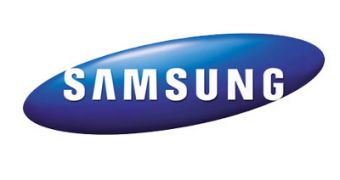Semiconductor manufacturing processes of below 40nm still account for a small part of the whole industry, but it's not for lack of trying on the companies' part, as Samsung's latest move will show.
That is to say, while most chips are still made on manufacturing technologies larger than 40nm, foundries have been pushing their factories further at a significant rate.
Which brings us to our main point: Samsung has announced that it has started to mass-produce 10nm 3-bit MLC (multi-level cell) NAND flash chips with a capacity of 128 Gigabits (Gb).
This is a significant step after Samsung began manufacturing 10nm 64 Gb MLC NAND back in November 2012.
The new chips will be used in memory cards of 128 GB, solid-state drives of 500 GB or more, PCI Express SSDs, and pretty much anything else Samsung can think of.
"By introducing next-generation memory storage products like the 128Gb NAND chip, Samsung is extremely well situated to meet growing global customer needs," said Young-Hyun Jun, executive vice president, memory sales & marketing, device solutions division, Samsung Electronics.
"The new chip is a critical product in the evolution of NAND flash, one whose timely production will enable us to increase our competitiveness in the high density memory storage market."
Samsung is understandably not pleased with how slowly SSDs of over 250 GB have been adopted.
While ultrabooks more or less have to use SSDs, because the alternative would be 1.8-inch HDDs that cost nearly as much, the same cannot be said about normal notebooks.
The 10nm 120 Gb chips, with over twice the productivity of 20nm 64 Gb MLC, will supposedly help with the adoption.
We assume that the company wishes the process would go as quickly as its advancements in nodes (it only took five months for the leap from 64 Gb 10nm to 128 Gb 10nm).

 14 DAY TRIAL //
14 DAY TRIAL //